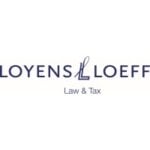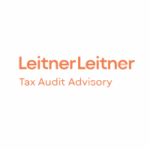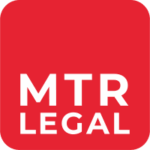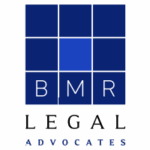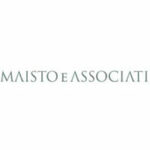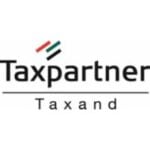-
Is it necessary for a taxpayer to register with the tax authority? Are separate registrations required for corporate income tax and value added tax/sales tax?
Yes, it is mandatory for a domestic taxpayer engaged in business or commercial activities in Korea to register with the local tax authority. A foreign taxpayer is required to register with the local tax authority if a permanent establishment exists in Korea. All businesses must register with their local tax office within 20 days of the commencement of their business activities.
However, separate registrations for corporate income tax and value-added tax (VAT) are not required. The Korean tax system streamlines this process. If a business registers under the Value Added Tax Law, it is automatically considered to be registered for the Corporate Income Tax Law as well. Consequently, it is not necessary to complete a separate registration for corporate income tax purposes.
-
In general terms, when a taxpayer files a tax return, does the tax authority check it and issue a tax assessment – or is there a system of self-assessment where the taxpayer makes their own assessment which stands unless checked?
The Korean tax system is generally based on self-assessment, where the taxpayer’s own calculation of their tax liability is considered final unless it is specifically selected for a more detailed review or audit.
However, the system incorporates verification procedures, particularly for electronic filings. The National Tax Service (NTS) of Korea has an electronic reporting system designed to enhance transparency and compliance. This system includes a verification service that permits taxpayers to check their reports for potential issues in both format and content before final submission.
For instance, when filing an electronic corporate income tax return, it must successfully pass two stages of verification:
- Format Verification This initial check ensures basic requirements are met. If a taxpayer enters an invalid business registration number or fails to attach a required form, the system will block the submission until the error is corrected.
- Content Verification After passing the format check, the return must also clear a routine content verification stage before it can be successfully submitted electronically.
-
Can a taxpayer amend the taxpayer’s return after it has been filed? Are there any time limits to do this?
Yes, a taxpayer can amend a tax return after it has been filed to correct various types of mistakes or omissions. Such corrections are often necessary to address issues like misreported earnings, incorrect application of tax credits, errors in the number of dependents claimed, or an improper filing status. The ability to amend is governed by specific time limits, and the applicable deadlines frequently depend on the particular facts and circumstances of the original tax filing. Generally, the statue of limitations for filing an amended tax return is 5 years from the date the original filing was properly and timely made.
Even if a taxpayer has already submitted a report, it is possible to revise and re-submit it at any time before the statutory filing deadline for filing amended tax return passes. This process allows for the correction of any inaccuracies to ensure the final return properly reflects the taxpayer’s income and deductions, thereby upholding the right to pay no more than the correct amount of tax
Furthermore, a taxpayer retains the right to file an amended return within five years after the statutory filing deadline, provided that the head of the competent tax office has not yet determined or corrected the tax base and tax amount of the national tax in question and issued a notice thereof pursuant to the relevant tax laws.
Moreover, in the event of an overpayment of tax, the taxpayer may file a request for correction with the head of the competent tax office with respect to the tax base and tax amount of the national tax as declared in the initial or any amended return. This request must be submitted within five years from the statutory filing deadline in order to claim a tax credit or a refund for the amount overpaid.
-
Please summarise the main methods for a tax authority to challenge the amount of tax a taxpayer has paid by way of an initial assessment/self-assessment.
The National Tax System, operated by the National Tax Service, is an information and communications network that integrally manages various taxation information, including the status of taxpayers’ acquisition and holding of real estate and stocks, tax invoices and sales data, and credit card sales details. This system collects and links extensive data from multiple sources to systematically track each taxpayer’s tax payment history and changes in assets.
Based on this information, the National Tax Service can electronically analyze whether a taxpayer has accurately reported their income. Through the results of such analysis, the National Tax Service selects taxpayers suspected of non-compliant reporting to determine whether to initiate a tax audit. In essence, this system serves as a crucial tool for scientifically selecting tax audit targets by utilizing objective data, heralding an era of scientific tax administration
-
What are the time limits that apply to such challenges (disregarding any override of these limits to comply with obligations to relief from double taxation under a tax treaty)?
When a foreign corporation conducts business in Korea but fails to complete the required tax registration, the tax authorities are empowered to assess taxes within legally defined time limits. These periods, known as the statute of limitations for assessment, are crucial as they dictate how long the government has to identify and claim unpaid taxes.
The specific time limit for tax assessment varies based on the corporation’s actions:
- Standard Assessment Period: In a typical case without aggravating factors, tax authorities can levy taxes for a period of five years from the date the tax reporting obligation legally arose. For any transactions considered offshore, this period is extended to seven years to account for the increased difficulty in gathering international information.
- Failure to File: If the foreign corporation neglects to submit a required tax report by the statutory filing deadline, the assessment right is prolonged. The authorities are granted a seven-year period to assess the tax liability, which increases to ten years if the non-filing involves offshore transactions.
- Tax Evasion or Fraud: For the most serious offenses, such as intentionally evading taxes or fraudulently obtaining tax deductions or refunds, the law provides the longest assessment window. In these instances, the tax authorities have ten years to assess the tax, and this extends to fifteen years for fraudulent activities related to offshore transactions, reflecting a stringent stance against deliberate tax fraud.
-
How is tax fraud defined in your law?
Under Korean tax law, the terms “fraud” or “improper conduct” are defined broadly to encompass a variety of deliberate actions intended to illegally evade taxes. This definition includes specific illicit activities such as maintaining dual accounting ledgers—a practice known as keeping two sets of books—to misrepresent financial reality to the tax authorities.
The scope of fraud also covers the preparation or acceptance of falsified documents, the deliberate destruction of books and records to erase evidence, and the active concealment of property. Furthermore, it includes the fabrication or hiding of income and business transactions, the intentional failure to maintain proper accounting records as required by law, and the creation of fraudulent tax invoices to understate liability. The law also contains a catch-all provision that criminalizes any other intentionally deceptive act performed with the purpose of misleading the tax authorities.
-
How is tax fraud treated? Does the tax authority conduct a criminal investigation with a view to seeking a prosecution and custodial sentence?
The legal response to tax fraud involves penalties that are directly tied to the value of the tax evaded. An individual who evades tax or illegitimately secures a tax refund or deduction through fraudulent means can be subject to imprisonment for a maximum of two years or a fine amounting to twice the value of the tax in question. The law further specifies aggravated penalties for large-scale evasion; when the amount of evaded tax crosses certain thresholds, the maximum prison sentences and fines increase accordingly to address more significant offenses.
Regarding enforcement, tax officers have the authority to investigate tax-related crimes, which includes the power to search a suspect’s premises and seize relevant assets. However, their investigative powers are administrative in nature. Tax officers do not have the authority to conduct a formal investigation under the Criminal Procedure Law. This means that while they can uncover evidence of a tax crime, they cannot independently pursue a criminal prosecution. For a case to result in a prosecution and a potential custodial sentence, the tax authorities must refer the case to the public prosecutor’s office, which holds the jurisdiction for criminal proceedings.
-
In practice, how often is a taxpayer audited after a return is filed? Does a tax authority need to have any justification to commence an audit?
In practice, taxpayers are generally audited about once every five years, a cycle that aligns with the country’s general statute of limitations for tax-related matters. The tax authority’s justification for initiating an audit depends on the type of audit being conducted.
Audits are primarily categorized into “regular audits” and “special audits,” each with different triggers.
- Regular Audits: These are the most common type and are generally conducted on a cyclical basis, typically every five years, for taxpayers who generate income above a certain threshold. While this five-year cycle is a standard procedure for high-income taxpayers, these audits are not strictly mandatory. A taxpayer who consistently reports income and pays taxes accurately and on time may avoid selection for a regular audit, as a strong compliance history is a significant factor.
- Special Audits: Unlike regular audits, a special audit requires a specific and compelling justification for its initiation. These audits are not routine and are launched when the National Tax Service (NTS) suspects wrongdoing or when there is an industry focus. The primary triggers for a special audit include the failure of a taxpayer to meet their reporting obligations or, more seriously, a direct suspicion of tax evasion. Therefore, a special tax investigation is a targeted action based on evidence or strong indications of non-compliance.
-
Does the tax authority have to abide by any standards or a code of conduct when carrying out audits? Does the tax authority publish any details of how it in practice conducts audits?
Yes, the National Tax Service (NTS) is legally required to adhere to a standard code of conduct when conducting tax audits. These obligations are enshrined in Korean tax law, which explicitly outlines the basic rights of taxpayers throughout the audit process and establishes the standards and code of conduct that NTS officials must observe.
Key aspects of this code of conduct include several procedural guarantees for the taxpayer. For example, in the case of a regular tax audit, the NTS must provide the taxpayer with advance notification, clearly define the audit’s scope, and formally communicate its results upon completion. Furthermore, the agency is obligated to inform the taxpayer of their specific rights. If a taxpayer objects to any action taken by the NTS or believes their rights have been violated during the audit, they have the right to seek recourse by consulting with the Taxpayer Advocate department, an internal body within the NTS designed to protect taxpayer rights.
To ensure this information is accessible, the NTS publishes details on its audit practices. At the beginning of a tax audit, the NTS provides the taxpayer with a tax audit guidebook that contains comprehensive information on the audit process, the standards of conduct officials must follow, and the taxpayer’s rights.
-
Does the tax authority have the power to compulsorily request information? Does this extend to emails? Is there a right of appeal against the use of such a power?
The National Tax Service (NTS) possesses the authority to compulsorily request information, but this power is governed by a complex interplay between legal theory and practical considerations, particularly during a special audit.
Theoretically, for the NTS to make a compulsory request for records during a special audit, it is required to obtain a warrant. This legal standard is most relevant during events like a “dawn raid” (or office sweep), where tax officials arrive at a taxpayer’s office without prior notice. In such scenarios, officials are technically not permitted to seize a taxpayer’s records and documents without a court warrant.
However, in practice, it is often considered to be in a taxpayer’s best interest to cooperate with requests for records, even when a warrant has not been presented. This is because non-cooperation can significantly and negatively influence the course of the tax audit, as the NTS has broad discretionary powers to control the timing and scope of its investigations. As there are no specific guidance on the scope and breath of documents that can be requested, non-cooperation (including the refusal to provide requested information on the basis that they are irrelevant to the tax audit) may result in substantial additional taxes being assessed following the conclusion of a tax audit in the case of a taxpayer deemed “uncooperative.” The only recourse then would be to seek a formal review or an administrative appeal and if unsuccessful, litigate in the courts. Moreover, refusal to provide information on foreign related party on transfer pricing investigation can result in levying of penalties against the taxpayer.
Regarding the scope of information requests, they do not typically extend to emails in practice. While there is no specific legal prohibition that prevents the NTS from requesting emails, the general expectation is that information requests should be limited to the records and documents that are directly necessary to calculate and determine the amount of tax owed.
Finally, taxpayers are not without recourse. There is an established right to appeal against a compulsory request for tax records, allowing taxpayers to challenge the NTS’s use of this power. However, successful challenges by taxpayers have not been widely reported.
-
Can the tax authority have the power to compulsorily request information from third parties? Is there a right of appeal against the use of such a power?
Yes, the National Tax Service (NTS) is vested with broad powers to compulsorily request information from third parties, such as a taxpayer’s counterparties. This authority is explicitly stipulated in Korean tax law, which grants tax officials the right to conduct investigations that extend to these third parties.
Scope and Limitations
The NTS can initiate an investigation or perform an on-site confirmation of a taxpayer’s counterparty if it is deemed necessary for the proper execution of a tax audit. This power allows the NTS to verify transactions and gather comprehensive information directly from the source.
However, this authority is not absolute. Taxpayers have a legal right to appeal against the NTS’s use of this power. An appeal can be lodged if the taxpayer believes that the NTS has made unreasonable or excessive requests for records, particularly if the requested information is considered to be beyond the necessary scope of the tax audit.
Despite the existence of this right to appeal, it is important to note that, in practice, taxpayers and their counterparties seldom refuse to submit requested records to the NTS. The broad authority and discretion held by the NTS during an investigation mean that non-cooperation is generally perceived as disadvantageous.
-
Is it possible to settle an audit by way of a binding agreement, i.e. without litigation?
It is possible in practice for a taxpayer to resolve a tax audit through informal means, effectively settling the matter with the National Tax Service (NTS) without resorting to litigation. This type of settlement occurs frequently and typically undertaken through a process of discussions and negotiations that take place directly with the NTS officials during the audit itself.
However, it is crucial to understand that these arrangements are unofficial. Currently, Korean tax law does not provide for a formal procedure that allows for a legally binding settlement agreement to be concluded at the audit stage. Therefore, while a taxpayer and the NTS may reach a practical understanding to conclude the audit, this resolution does not constitute a formal, binding settlement that would legally prevent future disputes or litigation on the same issue.
-
If a taxpayer is concerned about how they are being treated, or the speed at which an audit is being conducted, do they have any remedies?
Yes, taxpayers have specific remedies if they are concerned about their treatment or the pace of a tax audit. These remedies provide avenues to address issues of fairness and timing.
A key recourse is appealing to the Taxpayer Protection Committee. Taxpayers can request this committee to intervene and suspend what they perceive as “illegal or unfair acts” by tax officials during an audit. This is particularly relevant if an audit is considered objectively unreasonable in its scope or duration.
Additionally, taxpayers can formally request to alter the timing of the audit:
- Postponement: A taxpayer can request to postpone the start of a tax audit. This request is made after receiving the prior notice of the audit but before the audit has actually commenced.
- Suspension: If an audit is already underway, a taxpayer can request a suspension to temporarily halt the process.
For either a postponement or a suspension to take effect, the National Tax Service (NTS) must approve the taxpayer’s request. If a suspension is granted, the audit will be paused, and its official termination date will be extended by the duration of the suspension period, ensuring the NTS has adequate time to complete its work after the audit resumes. The practice of suspending a tax audit widely employed during a tax audit and in complex tax audits, it is not unusual to have more than one suspension.
-
If a taxpayer disagrees with a tax assessment, does the taxpayer have a right of appeal?
Yes, if a taxpayer in South Korea disagrees with a final tax assessment issued by the National Tax Service (NTS), they have an automatic right of appeal. The legal framework provides several distinct administrative channels for challenging the outcome of a tax audit or assessment.
After the NTS issues the final tax notice, a taxpayer who objects to the assessment can choose one of the following three options to formally appeal the decision:
- A request for an internal review to be conducted by the NTS itself.
- An appeal to the Tax Tribunal, which is an independent, quasi-judicial body specializing in tax disputes.
- A request for an audit of the assessment to be carried out by the Board of Audit and Inspection.
It should also be noted that even before a formal tax assessment notice is issued, taxpayers can challenge and appeal the proposed tax assessment to a tax committee comprised of NTS officials and non-NTS tax experts for a Review of Adequacy of Tax Imposition (“RATI”). Such appeal must be filed within 30 days of receiving a proposed tax assessment notice.
-
Is the right of appeal to an administrative body (independent or otherwise) or judicial in nature (i.e. to a tribunal or court)?
A taxpayer’s right of appeal against a tax assessment is both administrative and judicial in nature. The system provides two distinct procedures for challenging a tax assessment.
The first option is an administrative appeal, which is non-judicial and can be directed to one of several government bodies:
- The National Tax Service (NTS) itself
- The independent Tax Tribunal
- The Board of Audit & Inspection
The second option is a judicial appeal, which involves initiating a formal lawsuit and pursuing the matter through the court system.
-
Is the hearing in public? Is the decision published? What other information about the appeal can be accessed by a third party/the public?
The proceedings of a tax appeal are, in principle, open to the public, when the appeal reaches the stage of litigation in court.
Publicity of Hearings and Decisions
For tax disputes that are handled through court litigation, there is a general requirement to disclose both the hearing and the final decision. This means that the court proceedings are typically public, and the judgment is published.
However, this principle of transparency is subject to important exceptions:
- The court has the discretion not to publish its decision if it determines that disclosure could interfere with national security or cause harm to society.
- A party involved in the litigation can request that access to the decision be restricted. This is usually granted if the decision contains material secrets, trade secrets, or sensitive private information.
Public Access to Information
Normally, tax litigation decisions and other court records are accessible to the public. However, to protect the privacy of the individuals or entities involved, any sensitive information within these documents is redacted before they are made publicly available.
-
Is the procedure mainly written or a combination of written and oral?
Legal proceedings for tax disputes involve a combination of both written submissions and oral arguments, with the written documents holding greater significance in practice. In accordance with the Court Organization Law, a tax dispute is typically adjudicated by a three-judge panel, a structure that reflects the complexity of these cases.
The procedural rules mandate that each party must submit a detailed written statement or brief to the court before the scheduled hearing, known as the “pleading date.” This document outlines the full legal and factual basis of their case. Subsequently, on the pleading date, the parties present oral arguments in court. These arguments serve to emphasize the most critical points from the written briefs and to directly address any questions posed by the judges. Consequently, the procedure is a hybrid system, but one where the comprehensive written record forms the foundation of the case, and the oral pleadings act as a supplement.
-
Is there a document discovery process?
No, there is no formal document discovery process for tax lawsuits in South Korea.
The absence of such a process is a key feature of the country’s litigation framework. While a document discovery process was introduced for criminal proceedings in 2008, this change was not implemented for civil proceedings. Since tax lawsuits follow the rules of civil procedure mutatis mutandis (meaning the rules are applied with necessary alterations), the lack of a discovery process in the civil system extends to tax litigation as well.
-
Are witnesses called to give evidence?
While rare, witnesses can be called to provide evidence in tax disputes. The court has the general authority to examine any individual as a witness during the proceedings, unless specific legal provisions dictate otherwise. It is more frequent for witnesses to provide an affidavit of their testimony, especially if such witnesses reside outside of Korea.
The testimony from witnesses can be important evidence but would depend on their qualifications. Witness’s qualification would depend on their knowledge of specific facts or law which would be crucial to the outcome of tax disputes. Witness accounts can help clarify matters such as the intent behind a transaction or the nature of a business arrangement, which may not be fully apparent from documentary evidence alone.
-
Is the burden on the taxpayer to disprove the assessment the subject of the appeal?
In tax litigation, the allocation of the burden of proof follows a nuanced, shifting standard.
The Burden of Proof
Initial Burden on Tax Authority: In principle, the legal framework places the initial burden of proof squarely on the tax authority. This means the authority is responsible for establishing the legal basis for a tax obligation that it claims taxpayer has and for proving how the amount of tax due was calculated.
Shift in Burden to the Taxpayer: In practice, this burden often shifts during the course of litigation. Once the tax authority has presented a case that makes a reasonable determination that a valid tax claim exists, the responsibility moves to the taxpayer. At this point, the taxpayer must assert and provide evidence to prove that they have fulfilled their tax obligations.
Taxpayer’s Objective: The taxpayer’s goal is not necessarily to definitively disprove the tax authority’s entire case. Instead, it is often sufficient for the taxpayer to raise “considerable doubt” about the legitimacy of the tax claim. If the taxpayer’s evidence and arguments succeed in making the judge unconvinced that the tax claim is justified, the burden of proof shifts back to the tax authority. If the authority cannot then meet this re-established burden, the tax assessment may be revoked. It should be noted that the standard of doubt is high to overturn a tax assessment – a mere preponderance of doubt or reasonable doubt is insufficient. Rather, the doubt of improper tax assessment has be substantial and considerable for the court to consider providing relief (i.e. cancellation of tax assessment in whole or in part).
Grounds for Appeal: The correct application of the burden of proof is a fundamental aspect of the trial. If a judge misunderstands or misapplies these rules regarding the burden of proof and issues a wrongful judgment as a result, this judicial error can serve as valid grounds for an appeal by the taxpayer.
-
How long does an appeal usually take to conclude?
In South Korea, the duration of a tax dispute process can vary significantly depending on the complexity of the case and its path through the legal system.
For a typical tax dispute, the process from the initial filing in the first instance court to a final, conclusive decision by the Supreme Court takes, on average, three to four years.
However, completing a tax dispute in the courts can be considerably longer for cases that involve more complicated factual circumstances, novel or difficult legal issues, or for those that are expected to have a significant social (including budgetary) impact. For these more complex cases, it is not uncommon for the entire litigation process to take as long as five to seven years to conclude.
-
Does the taxpayer have to pay the assessment pending the outcome of the appeal?
In South Korea, it is standard practice for taxpayers to pay a disputed tax assessment prior to filing an appeal. This approach is primarily adopted to avoid additional interest from accruing and the significant risk of having property seized by the tax authorities.
The National Tax Service (NTS) is legally empowered to seize a taxpayer’s property to cover an outstanding tax liability if the assessed amount is not paid. Should a seizure occur, the taxpayer has the right to initiate a separate legal challenge, such as requesting a trial, to appeal specifically against the property seizure. An appeal of this nature may prevent the NTS from disposing of the seized property through a public sale until the case is fully resolved.
Despite the availability of this recourse, the prevailing strategy for most taxpayers who disagree with a tax assessment is to pay the disputed amount first. After payment, they then proceed with their formal complaint or request for a tax trial. This “pay now, fight later” approach is a practical measure taken specifically to prevent the disruptive and often damaging consequences of having their property seized by the tax authorities.
-
Are there any restrictions on who can conduct or appear in the appeal on behalf of the taxpayer?
Yes, there are significant restrictions that govern who can appear on behalf of a taxpayer in an appeal in South Korea.
As a general rule, litigation can only be conducted by the parties directly involved or by a legally recognized representative, which is typically a licensed attorney.
However, an exception exists for less complex cases presided over by a single judge. A straightforward capital gains tax case is a common example of this type of litigation. In these specific circumstances, an individual who may be an expert in tax matters such as a certified public accountant or certified tax agent but is not a licensed attorney may act as a representative for the taxpayer, but they must first obtain explicit permission from the court to do so.
-
Is there a system where the “loser pays” the winner’s legal/professional costs of an appeal?
Yes, in principle, South Korean litigation operates on a “loser pays” system, where the cost of an appeal should be borne by the losing party.
Allocation of Costs
The litigation costs that the losing party is required to cover explicitly include “the remuneration paid or due to be paid to the lawyer acting as representative in the lawsuit.”
However, there are important limitations to this rule:
- Cap on Recoverable Fees: The amount of the lawyer’s remuneration that can be recovered is not the full fee but is limited to a certain standard. The provided text states this standard is based on the scope of the underlying contract, though in practice it is typically calculated according to official court tables based on the value of the lawsuit.
- Partial Loss: If a case results in a partial loss, where neither party is fully successful, the court has the discretion to allocate the litigation costs between the parties as it deems appropriate.
In practice, the amount of attorney fees recovered by the prevailing party from the losing party is a small fraction of the total legal fees incurred.
-
Is it possible to use alternative forms of dispute resolution – such as voluntary mediation or binding arbitration? Are there any restrictions on when this alternative form of dispute resolution can be pursued?
No, in tax disputes, it is not possible to use alternative forms of dispute resolution (ADR), such as voluntary mediation or binding arbitration. More specifically, the Korean government did not accept the binding arbitration provision contained in Part VI (Article 18 to 26) the OECD Multilateral Instrument (MLI) whereas many other provisions contained therein were substantially adopted.
The Korean legal system does recognize and utilize ADR in other areas. For instance, there is court-based mediation for civil disputes, governed by the Judicial Conciliation of Civil Disputes Law. Additionally, various administrative agencies have their own mediation and arbitration bodies to handle specific types of conflicts, such as the Committee on Construction Disputes or the Consumer Dispute Mediation Committee.
However, the legal framework for tax litigation does not include provisions for these ADR methods. A formal mediation and settlement system has not been separately stipulated by law for tax-related cases. Therefore, taxpayers must resolve their disputes with the tax authority through the established administrative appeal channels or formal court litigation.
It should also be noted that binding arbitration clauses are contained in many Korean Bilateral Investment Treaties (BITs). Some of these BITs contain provisions that can impact taxation and hence it is possible that in some situations involving tax disputes under the BIT, it would be possible to invoke arbitration to resolve such tax disputes.
-
Is there a right of onward appeal? If so, what are all the levels of onward appeal before the case reaches the highest appellate court.
Yes, a taxpayer has a right of onward appeal that progresses through both administrative and judicial stages.
First, the taxpayer can file an administrative appeal. This is a mandatory first step for most tax disputes. However, there is an exception for disputes concerning local taxes, in which case the taxpayer can bypass the administrative process and file a lawsuit directly with the court.
If the taxpayer’s claim is dismissed during the administrative appeal procedure, they have the right to file a tax lawsuit with the court system. This lawsuit must be initiated within 90 days from the date they receive the decision from the administrative body.
The judicial appeal process for tax lawsuits follows a three-tiered court structure:
- First Instance: The case is first heard by the Seoul Court for Administrative Matters or the administrative division of a local district court.
- Second Instance: The decision of the first-instance court can be appealed to one of several Seoul or Regional High Courts.
- Final Appeal: The final level of appeal is to the Supreme Court, which is the highest appellate court in the country.
It should be noted that while some tax matters having Constitutional Law implications can be appeal to the Constitutional Court, which is sitting at the same level as a High Court, it is rare that a tax matter is appealed and resolved by the Constitutional Court.
-
What are the main penalties that can be applied when additional tax is charged? What are the minimum and maximum penalties?
Providing general guidance on minimum and maximum tax penalties is difficult because the situations for invoking such penalties are varied and highly specific, with the amount of penalties varying significantly based on the particular tax and the nature of the infraction. The penalties are tailored for each tax type and the specific reason for their imposition.
The main penalties are calculated as follows:
- Penalties for Late Payment: These are not a flat fee but are calculated using a specific formula. The amount of tax not paid is multiplied by the number of days it remains overdue and a legally prescribed interest rate, resulting in a penalty that accrues daily. In many jurisdictions, this type of penalty is not considered a penalty but as “additional interest.”
- Penalties for Underreporting: A common penalty for underreporting tax is a charge equivalent to a maximum of 10% of the underreported tax amount. This rate, however, typically applies to simple or unintentional errors. The percentage can increase substantially if the underreporting is deemed fraudulent or involves other improper practices.
- Other Penalties: The system also includes distinct penalties for other violations. This includes penalties for non-reporting, which applies when a taxpayer fails to file a tax return altogether, and penalties for the non-payment of withholding tax, which targets employers who fail to remit taxes collected from employees.
Because each penalty is calculated based on different factors—such as daily accrual, fixed percentages that vary with intent, and the specific tax involved—the thresholds for penalties will differ in every case.
-
If penalties can be mitigated, what factors are taken into account?
Tax penalties can be mitigated or fully waived if the taxpayer can demonstrate a “justifiable reason” for their failure to meet their obligations. This principle is explicitly stipulated in Korean tax law and serves as the primary basis for relief from penalties.
The term “justifiable reason” is interpreted to cover two main types of situations:
- Reasonable Lack of Awareness: This applies when it is considered reasonable for the taxpayer not to have known about their specific tax obligation. This could be due to ambiguous or newly enacted laws, the complexity of the transaction, or other justifiable circumstances that made awareness of the duty difficult for a compliant taxpayer.
- Inability to Comply: This includes scenarios where it would be unreasonable to expect the taxpayer to fulfill their obligation. This typically refers to external events beyond the taxpayer’s control, such as a natural disaster, a sudden and severe illness, a fire, or other force majeure events that physically or practically prevent compliance.
Essentially, for penalties to be mitigated, the taxpayer must prove that their failure to comply was not a result of simple negligence or willful intent, but rather was caused by circumstances that made it genuinely unfeasible or unreasonable to meet their tax duties.
-
Within your jurisdiction, are you finding that tax authorities are more inclined to bring challenges in particular areas? If so, what are these?
Yes, tax authorities demonstrate a greater inclination to bring challenges in specific, high-risk areas.
The National Tax Service (NTS) is particularly focused on and more likely to challenge the following situations:
- Illegal misappropriation of company funds: This involves cases where major shareholders or directors of a corporation illegally take or use company funds for personal benefit.
- Large wealth transfers: The NTS closely scrutinizes large-scale transfers of wealth, especially when they are structured using shares or channeled through a loss-making company to minimize tax liability.
- Offshore tax evasion: A significant area of focus is tax evasion that makes use of overseas tax havens to conceal assets or income.
- Related Party Transaction: Any large transactions involving related parties, especially between high net-worth individuals and their family members will be scrutinized and often challenged.
-
In your opinion, are there any areas which taxpayers are currently finding particularly difficult to deal with when faced with a challenge by the tax authorities?
From a practical standpoint, taxpayers currently find it particularly difficult to deal with challenges from the National Tax Service (NTS) in several key areas. Among these, two stand out due to their complexity and the fact-intensive nature of the disputes: determination of tax residency and the beneficial ownership of Korean-source income received by foreign companies. These two issues are important since depending on their outcome, the income in question may quality for reduced tax or even exemption from Korean tax under the domestic law or a Korean tax treaty.
Difficulties in Tax Disputes
Tax Residency Determination
Disputes over tax residency are challenging because they are not decided by a single, definitive rule but rather by a holistic assessment of a taxpayer’s life and economic ties. A typical dispute involves a disagreement over facts, where the NTS and the taxpayer present conflicting evidence on several points. These include whether the taxpayer:- Maintains a physical address or a center of living in Korea.
- Has stayed within Korean territory for 183 days or more in a given year, a common but not sole determinant.
- Retains significant economic interests in Korea, such as employment, business operations, or substantial assets.
- Holds permanent residence in a country other than Korea, which requires proving stronger ties to that foreign jurisdiction.
The difficulty for taxpayers lies in the subjective nature of the NTS’s analysis, which weighs all these factors together, making it hard to predict outcomes and to provide sufficient evidence to counter the NTS’s position.
Beneficial Ownership of Korean-Source Income
The issue of beneficial ownership is another frequent and difficult point of contention. These disputes are crucial as they determine whether a foreign company is eligible for reduced withholding tax rates under a tax treaty with Korea. The central issue is whether a foreign company receiving Korean-source income is the true beneficial owner or merely a “pass-through” entity established to take advantage of treaty benefits.Disputes often arise when the NTS suspects “treaty shopping.” The tax authorities will scrutinize the foreign entity to determine if it has sufficient economic substance or if it is a conduit company. Taxpayers find it challenging to defend their structures, as they must prove that the foreign company has genuine business operations, decision-making authority over the income, and is not simply a shell company.
-
Which areas do you think will be most likely to be the subject of challenges and disputes in the next twelve months?
Looking ahead to the next twelve months, it is anticipated that the National Tax Service (NTS) will focus its challenges on several key areas, primarily centered on international tax and anti-avoidance rules.
The following areas are expected to be prominent sources of tax disputes:
- Determination of Beneficial Ownership: The NTS will likely continue to rigorously scrutinize whether foreign entities receiving Korean-source income are the true beneficial owners or merely conduits designed to obtain treaty benefits.
- The Principal Purpose Test (PPT): As a critical component of modern tax treaties and the Multilateral Instrument (MLI), the NTS is expected to increasingly apply the PPT to deny treaty benefits where the primary motivation behind a transaction or arrangement is to secure a tax advantage.
- Existence of Permanent Establishments (PE): Disputes are anticipated over whether the activities of foreign companies in Korea constitute a PE. This includes challenges to arrangements where a significant business presence is maintained without being formally recognized as a taxable establishment.
- Use of Tax Havens: The use of offshore tax havens to evade taxes remains a top priority for the NTS, and investigations into complex offshore structures designed to conceal income or assets will continue to be a major area of conflict.
- Transfer Pricing: Transactions between related parties will be subject to intense scrutiny to ensure they comply with arm’s-length principles. The NTS will challenge pricing arrangements that appear to shift profits out of Korea.
- Source of Income for Royalties: A specific and emerging area of dispute will likely be the source of income rules for royalties paid for patents that are not registered in Korea. The NTS is expected to argue that such payments still constitute Korean-source income and are therefore subject to withholding tax.
South Korea: Tax Disputes
This country-specific Q&A provides an overview of Tax Disputes laws and regulations applicable in South Korea.
-
Is it necessary for a taxpayer to register with the tax authority? Are separate registrations required for corporate income tax and value added tax/sales tax?
-
In general terms, when a taxpayer files a tax return, does the tax authority check it and issue a tax assessment – or is there a system of self-assessment where the taxpayer makes their own assessment which stands unless checked?
-
Can a taxpayer amend the taxpayer’s return after it has been filed? Are there any time limits to do this?
-
Please summarise the main methods for a tax authority to challenge the amount of tax a taxpayer has paid by way of an initial assessment/self-assessment.
-
What are the time limits that apply to such challenges (disregarding any override of these limits to comply with obligations to relief from double taxation under a tax treaty)?
-
How is tax fraud defined in your law?
-
How is tax fraud treated? Does the tax authority conduct a criminal investigation with a view to seeking a prosecution and custodial sentence?
-
In practice, how often is a taxpayer audited after a return is filed? Does a tax authority need to have any justification to commence an audit?
-
Does the tax authority have to abide by any standards or a code of conduct when carrying out audits? Does the tax authority publish any details of how it in practice conducts audits?
-
Does the tax authority have the power to compulsorily request information? Does this extend to emails? Is there a right of appeal against the use of such a power?
-
Can the tax authority have the power to compulsorily request information from third parties? Is there a right of appeal against the use of such a power?
-
Is it possible to settle an audit by way of a binding agreement, i.e. without litigation?
-
If a taxpayer is concerned about how they are being treated, or the speed at which an audit is being conducted, do they have any remedies?
-
If a taxpayer disagrees with a tax assessment, does the taxpayer have a right of appeal?
-
Is the right of appeal to an administrative body (independent or otherwise) or judicial in nature (i.e. to a tribunal or court)?
-
Is the hearing in public? Is the decision published? What other information about the appeal can be accessed by a third party/the public?
-
Is the procedure mainly written or a combination of written and oral?
-
Is there a document discovery process?
-
Are witnesses called to give evidence?
-
Is the burden on the taxpayer to disprove the assessment the subject of the appeal?
-
How long does an appeal usually take to conclude?
-
Does the taxpayer have to pay the assessment pending the outcome of the appeal?
-
Are there any restrictions on who can conduct or appear in the appeal on behalf of the taxpayer?
-
Is there a system where the “loser pays” the winner’s legal/professional costs of an appeal?
-
Is it possible to use alternative forms of dispute resolution – such as voluntary mediation or binding arbitration? Are there any restrictions on when this alternative form of dispute resolution can be pursued?
-
Is there a right of onward appeal? If so, what are all the levels of onward appeal before the case reaches the highest appellate court.
-
What are the main penalties that can be applied when additional tax is charged? What are the minimum and maximum penalties?
-
If penalties can be mitigated, what factors are taken into account?
-
Within your jurisdiction, are you finding that tax authorities are more inclined to bring challenges in particular areas? If so, what are these?
-
In your opinion, are there any areas which taxpayers are currently finding particularly difficult to deal with when faced with a challenge by the tax authorities?
-
Which areas do you think will be most likely to be the subject of challenges and disputes in the next twelve months?
